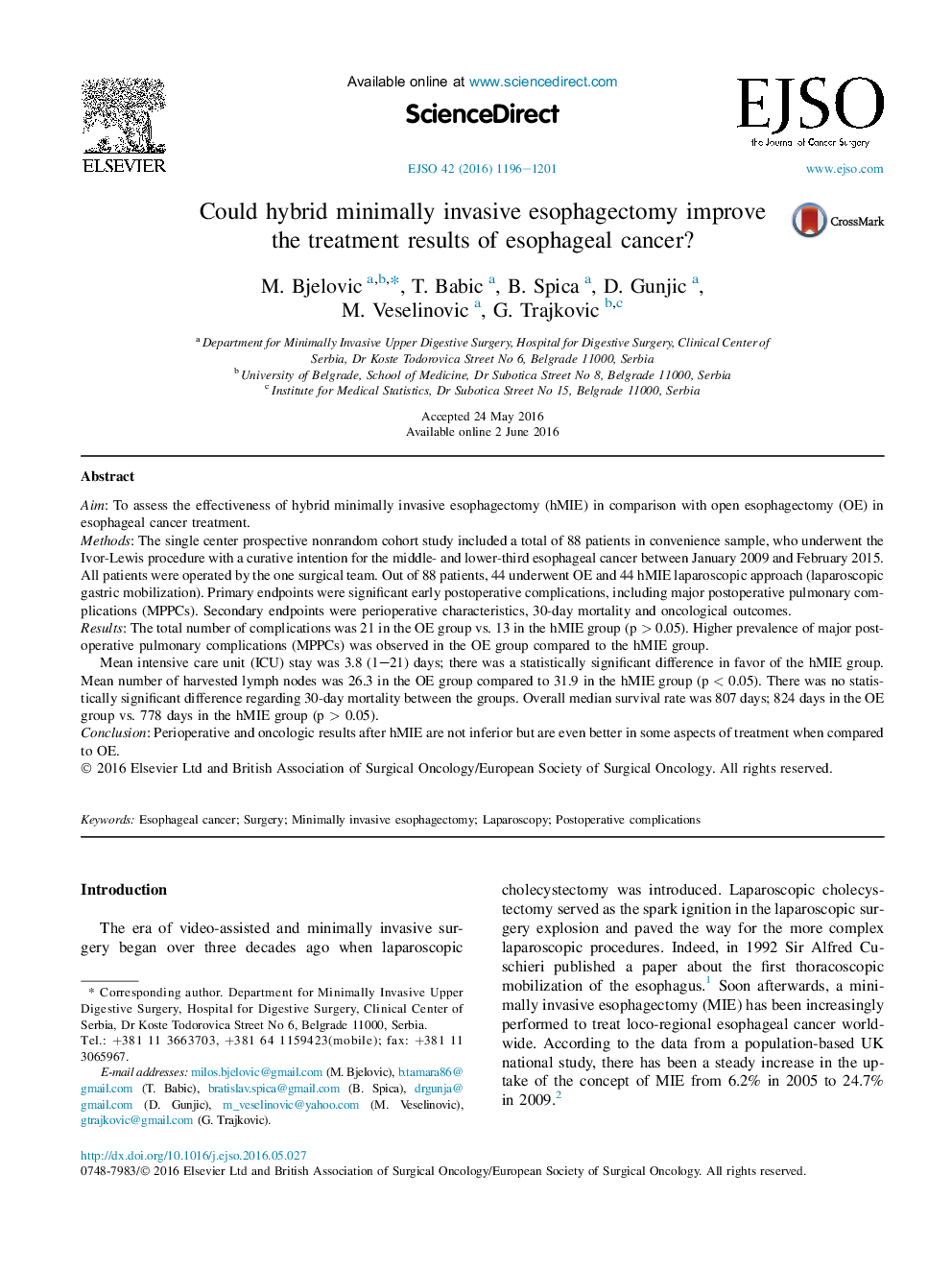| Article ID | Journal | Published Year | Pages | File Type |
|---|---|---|---|---|
| 3984415 | European Journal of Surgical Oncology (EJSO) | 2016 | 6 Pages |
AimTo assess the effectiveness of hybrid minimally invasive esophagectomy (hMIE) in comparison with open esophagectomy (OE) in esophageal cancer treatment.MethodsThe single center prospective nonrandom cohort study included a total of 88 patients in convenience sample, who underwent the Ivor-Lewis procedure with a curative intention for the middle- and lower-third esophageal cancer between January 2009 and February 2015. All patients were operated by the one surgical team. Out of 88 patients, 44 underwent OE and 44 hMIE laparoscopic approach (laparoscopic gastric mobilization). Primary endpoints were significant early postoperative complications, including major postoperative pulmonary complications (MPPCs). Secondary endpoints were perioperative characteristics, 30-day mortality and oncological outcomes.ResultsThe total number of complications was 21 in the OE group vs. 13 in the hMIE group (p > 0.05). Higher prevalence of major postoperative pulmonary complications (MPPCs) was observed in the OE group compared to the hMIE group.Mean intensive care unit (ICU) stay was 3.8 (1–21) days; there was a statistically significant difference in favor of the hMIE group. Mean number of harvested lymph nodes was 26.3 in the OE group compared to 31.9 in the hMIE group (p < 0.05). There was no statistically significant difference regarding 30-day mortality between the groups. Overall median survival rate was 807 days; 824 days in the OE group vs. 778 days in the hMIE group (p > 0.05).ConclusionPerioperative and oncologic results after hMIE are not inferior but are even better in some aspects of treatment when compared to OE.
